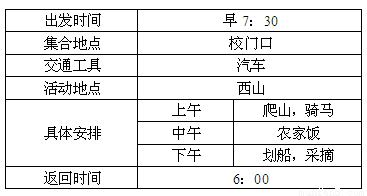题目内容
When I was about 12, I had an enemy, a girl who liked to point out my shortcomings. Week by week her list grew: I was very thin, I wasn’t a good student, I talked too much, I was too proud, and so on. I tried to hear all this as long as I could. At last, I became very angry. I ran to my father with tears in my eyes.
He listened to me quietly, and then he asked. “Are the things she says true or not? Janet, didn’t you ever wonder what you’re really like? Well, you now have that girl’s opinion. Go and make a list of everything she said and mark the points that are true. Pay no attention to the other things she said.”
I did as he told me. To my great surprise, I discovered that about half the things were true. Some of them I couldn’t change (like being very thin), but a good number I could—and suddenly I wanted to change. For the first time I got a fairly clear picture of myself.
I brought the list back to Daddy. He refused to take it. “That’s just for you,” he said. “You know better than anyone else the truth about yourself. But you have to learn to listen, not just close your ears in anger and feel hurt. When something said about you is true, you’ll find it will be of help to you. Don’t shut your ears. Listen to them all, but hear the truth and do what you know is the right thing to do.”
Daddy’s advice has returned to me at many important moments. In my life, I’ve never had a better piece of advice.
1. Which do you think would be the best title for this passage?
A. Not an Enemy, but the Best Friend
B. The Best Advice I’ve Ever Had
C. My Father
D. My Childhood
2. What does “Week by week her list grew” mean?
A. Week by week she discovered more shortcomings of mine and pointed them out to me.
B. She had made a list of my shortcomings and she kept on adding new ones to it so that it was growing longer and longer.
C. I was having more and more shortcomings as time went on.
D. Week by week, my shortcomings grew more serious.
3. Why did her father listen to her quietly?
A. Because he believed that what her daughter’s “enemy” said was mostly true.
B. Because he had been so angry with his daughter’s shortcomings that he wanted to show this by keeping silent for a while.
C. Because he knew that his daughter would not listen to him at that moment.
D. Because he wasn’t quite sure which girl was telling the truth.
4. What did the father do after he had heard his daughter’s complaint?
A. He told her not to pay any attention to what her “enemy” had said.
B. He criticized (批评) her and told her to overcome her shortcomings.
C. He told her to write down all that her “enemy” had said about her and pay attention only to the things that were true.
D. He refused to take the list and have a look at it.
1.B
2.A
3.A
4.C
【解析】
试题分析:作者在12岁时,有个朋友总是指责她的缺点,作者一开始难以承受,但是后来在爸爸的帮助下,意识到那些吹毛求疵的话是她所得到的最好的建议。
1.最佳标题。根据文章最后作者惊讶的发现“敌人”给自己指出的毛病自己的确存在,最后意识到这是自己得到的最好的建议。选B。
2.2】猜测词义题。根据第一段得知作者在12岁时,遇到一个总挑自己毛病的“敌人”,而且“敌人”给自己挑出的不足与日俱增。选A。
3.3】推理判断题。通过爸爸建议孩子有则改之,无则加勉,得知爸爸知道女儿的“敌人”给她挑出的缺点的确存在。选A。
4.4】细节理解题。根据第二段Go and make a list of everything she said and mark the points that are true. Pay no attention to the other things she said.得知爸爸听完女儿的牢骚后,建议她列个表,只关注“敌人”说的对的内容。选C。
考点:故事类文章

